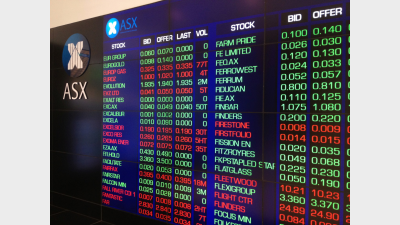Funds delay declaring earnings rates



 |
| Jeff Bresnahan
|
Up to 45 per cent of superannuation funds surveyed by Sydney-based ratings house SuperRatings have yet to declare their final earnings rates in circumstances where they need to finalise unlisted asset revaluations and other cost impacts.
That is the bottom line assessment of SuperRatings principal Jeff Bresnahan, who acknowledged that industry funds dominated those that had yet to report their final earnings rates and that they included funds expected to be among the best performers for the year.
Discussing the delays, Bresnahan said they were due to a multitude of things, but primarily related to the not-for-profit sector and included the need to finalise additional revaluations for unlisted assets, the need for more certainty of tax implications in a negative earnings environment and the need to run interim reviews to accurately determine member protection costs, which balloon in negative investment times.
He predicted that the negative median return was expected to be in the range of 17 per cent between the best and worst-performing balanced option investments, compared to 18.4 per cent in 2007-08 and 11.2 per cent in 2001-02.
Recommended for you
Rest Super remains “fully committed” to equities, even as it anticipates higher market volatility than experienced in previous decades.
Australian superannuation funds have again generated strong returns for FY25, with the median growth fund returning 10.5 per cent for the year, according to Chant West.
The US remains a standout destination for innovation and commercialisation, according to MLC Asset Management chief investment officer Dan Farmer.
Hostplus’ MySuper Balanced option delivered significantly stronger returns in 2024–25, bouncing back from the previous year when its cautious stance on listed markets came at a cost to members.











